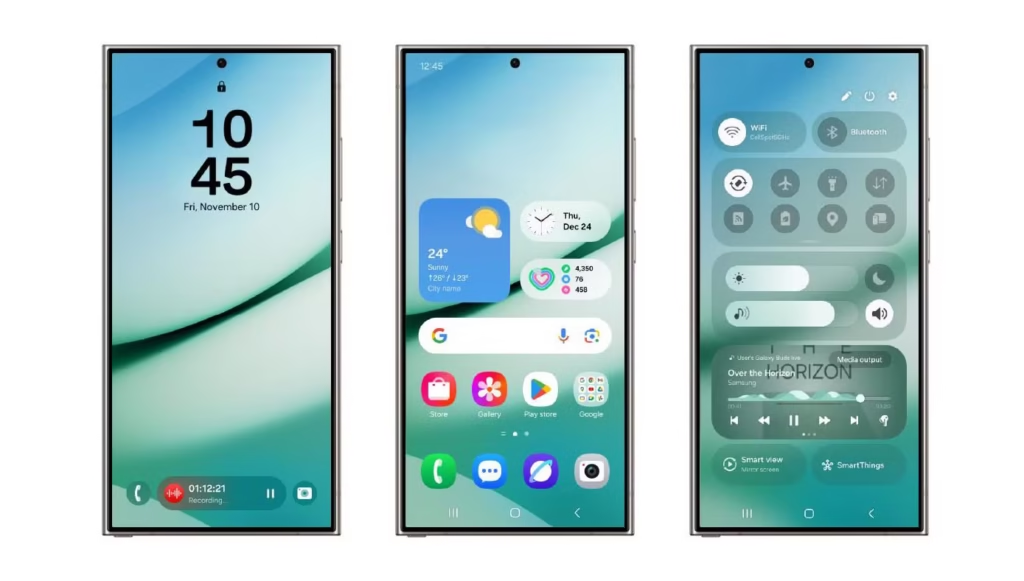
One UI 7 Lacks Essential Features, Claims Android Police Podcast
An Overview of One UI 7
Samsung’s One UI has undergone significant evolution since its initial launch, championing user experience and aesthetics in the Android ecosystem. However, the latest version, One UI 7, has sparked controversy among tech enthusiasts and users alike, particularly as discussed in a recent episode of the Android Police Podcast. The episode delves into the implications of the new software, highlighting certain features that appear to be missing or underwhelming.
What’s Missing in One UI 7?
Listeners of the Android Police Podcast were surprised to discover that One UI 7 has come under criticism for its lack of essential features. Flesh out app usability and personalization seem to be among the areas receiving the most notable pushback. Here are some of the key points discussed in the podcast:
- **Customization Limitations:** Users expect more options for personalizing their devices, and One UI 7 seems to have fallen short.
- **Widget Overhaul:** The podcast highlighted that compared to previous versions, the new widget designs lack the depth and diversity that users have come to appreciate.
- **Performance Enhancements:** While users were eager for speed and efficiency gains, many still faced sluggish performance—a major drawback in the increasingly competitive smartphone space.
- **Notification Features:** Enhancements to notification management were anticipated but were noted as lacking in functionality, leaving users frustrated.
User Experience Concerns
Tech enthusiasts often judge a device by the operating system’s ability to provide a seamless user experience. The Android Police Podcast pointed out several areas where One UI 7 might have missed the mark:
Navigation and Usability Issues
While One UI has been celebrated for its intuitive navigation, the new version appears to complicate processes that were once straightforward. Listeners expressed concerns that:
- Multi-tasking features were not as robust as expected, resulting in an increase in time spent navigating apps.
- Accessibility options were not fully realized, leaving users with disabilities at a disadvantage.
The Users’ Reaction
Feedback from the podcast’s audience, alongside broader community discussions, has indicated disappointment among long-time Samsung fans. Many expected One UI 7 to build on previous successes and address known pain points. Key areas of concern include:
- Battery Optimization: Users reported that battery performance hasn’t seen significant improvement, which was a high expectation given the advancements in hardware.
- Camera Features: With photography becoming increasingly vital in smartphone use, the omitted camera enhancements prompted dissatisfaction among users who anticipated improvements in this domain.
What’s Next for One UI?
The discussions on the podcast have raised questions regarding Samsung’s approach to its software updates. Will the company listen to the feedback from its user base and make necessary adjustments? It remains crucial for Samsung to engage with user feedback to forge a path forward, ensuring that future updates and versions are aligned with customer expectations.
Those anticipating patches or improvements for One UI 7 may also look forward to developments in upcoming versions. Samsung’s commitment to enhancing user experience will be crucial in maintaining its competitive edge in the smartphone market.
As more users make their voices heard, it is clear that the demand for robust features and enhanced functionality remains a priority. The overarching sentiment is one of cautious optimism that Samsung is truly listening and will prioritize user satisfaction in its future software updates.
Overall, the discussions on the Android Police Podcast shed light on One UI 7’s shortcomings and the vital features that are still eagerly awaited by users. As the tech community continues to voice their opinions, it will be interesting to see how Samsung responds in the ongoing quest for user-centric development.
